featured
Florida House Advances Bills to Regulate, Tax Hemp THC Products
Published
5 months agoon
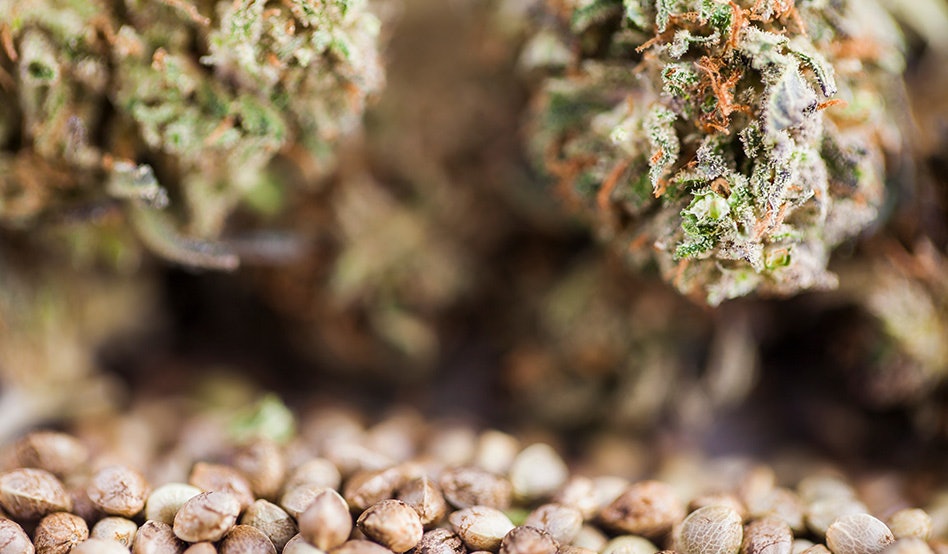
Florida House lawmakers backed a pair of bills on April 16 that aim to tighten regulations on hemp-derived THC products and add a 15% excise tax on retail sales.
The House Budget Committee unanimously advanced both proposals, House Bills 7027 and 7029, with the latter bill requiring a two-thirds majority from both chambers of Florida’s Legislature to establish the new tax.
Under H.B. 7029, all consumable hemp product retailers would be required to register with the Department of Agriculture and Consumer Services (DACS), with the first $6 million collected in excise taxes under the bill allocated to the DACS’ General Inspection Trust Fund for enforcement of the state’s hemp program and testing standards. The remaining tax revenue would go to the state’s general fund.
This excise tax could generate more than $1.5 billion in annual revenue for the state, based on an estimate that Florida’s hemp-derived cannabinoid retailers’ total sales from 2022 were more than $10 billion, according to Whitney Economics.
Jodi James, president of the Florida Cannabis Action Network, opposed the tax proposal during Wednesday’s committee hearing, suggesting that nonintoxicating CBD products with trace amounts of THC should be treated like vitamins and supplements, which are free of taxation in Florida.
“While I recognize that you’re trying to create a lane for all of these things, not all hemp products are created for the intoxicating effect,” she said. “While I appreciate that we are putting a tax on the intoxicating hemp products, many companies are creating truly CBD products that are created for wellness; they’re created for supplements. And I’d like to see that we can make sure, as we move to the next stop, that we can clearly delineate the products that are created for that intoxication market.”
The 15% excise tax effective date of Jan. 1, 2026, under H.B. 7029 is contingent upon H.B. 7027 or similar legislation passing.
Under H.B. 7027, sponsored by Reps. Michelle Salzman, R-Pensacola, and Dana Trabulsy, R-Fort Pierce, the retail sale of consumable hemp-derived THC products would be limited to establishments that have a food permit from the DACS and prohibit the presence of persons under 21 years of age on their premises.
The age restriction poses a threat to product sales in grocery stores, gas stations and other convenience stores that allow those under the age of 21 on their premises to purchase nonintoxicating products like candy, chips and soft drinks.
Rep. Traci Koster, R-Tampa, took issue with this provision in the bill.
“I like that we’re finally regulating age restrictions, safety—all of those things are great,” she said, adding that she agrees with treating intoxicating hemp products similarly to alcohol. “I do think I’d like to see more conversation about our convenience stores being added back in. I think they, too, are allowed to sell alcohol at different levels. … I think we need to be considering that as well, so that we’re not making this lopsided for different vendors.”
Rep. Lauren Melo, R-Naples, piggybacked on Koster’s comments, indicating that while she’d support the bill in committee, that support could change later in the legislative process.
“I will be up today, but I don’t believe we should be picking winners or losers here with hemp products,” she said. “I, too, would like to see convenience stores added back in.”
The legislation would also remove the definition for the term “hemp extract” from Florida law and replaces it with a definition for “hemp consumable THC product,” which means “a substance or compound intended for ingestion, containing more than trace amounts of THC derived from hemp or any other source, or for inhalation which is derived from or contains THC derived from hemp or any other source, and which does not contain controlled substances,” according to a bill analysis.
However, unlike companion legislation, Senate Bill 438, which survived a full-body vote earlier this month in the upper chamber, H.B. 7027 would not ban all products containing hemp-derived synthetic cannabinoids, such as delta-8 THC, delta-10 THC, HHC, THC-O, THCP and THCV.
RELATED: Florida Bill to Restrict, Regulate Hemp Products Advances to Senate Floor
Although Salzman said she was going to add language to H.B. 7027 regarding synthetics in the next committee stop, she said, “I’m not quite sure about the banning of them.”
In addition, H.B. 7027 would:
- Require consumable hemp-derived THC products to have a certificate of analysis prepared by an independent testing laboratory;
- Prohibit packaging that is attractive to children;
- Prohibit ingesting hemp consumable THC products within 1,000 feet of schools; and
- Prohibit hemp consumable THC products from being sold, given, bartered, furnished, or delivered to consumers at wholesale or at festivals, fairs, trade shows, farmers markets, expositions or pop-up retail establishments.
The legislation also establishes THC serving and packaging limits, including:
- Beverages: no more than 5 milligrams of THC per 6 ounces, with individual containers having no more than 12 ounces and sold with no more than 10 containers per package.
- Edibles: no more than 2.5 milligrams of THC per gram, with individual edibles weighing no more than 2 grams and sold individually wrapped in packages of no more than 20 edibles.
- Pre-rolls and Vapes: no more than 2.5 milligrams of THC per gram, with individual units weighing no more than 1 gram and sold in packages containing no more than 20 units.
- Tinctures: no more than 100 milligrams of THC per gram, sold individually in up to 1-gram containers.
The THC milligram limits in each of the four bullet points above would be halved beginning on Jan. 1, 2029, under the legislation.
In addition, the bill would prohibit a person from purchasing hemp consumable THC products that total more than 100 milligrams of THC in a 24-hour period
Patrick Shatzer, the senior manager of regulatory affairs at Sunmed, a CBD franchise retailer with 260 stores in the U.S., including 42 locations in Florida, opposed the legislation during Wednesday’s committee hearing.
“I would just want to continue to express [that] the THC limits for edibles should match those for beverages,” he said. “The size of the gummies, or the size of the product, right now, it’s going to be limited to 2 grams, which is just the tiny little pinky. … The industry standard is anywhere from 5 to 8 grams. Just set a THC milligram limit and make us meet that.”
Shatzer also recommended amending the bill to allow for 30 servings per container to match dietary supplement standards. He also suggested that the 100-milligram THC limit per 24 hours isn’t enforceable.
While Salzman indicated that she would introduce amendments to the bill next week in the House Commerce Committee, she said she wasn’t willing to budge on the one-day THC limit.
“The weight-to-THC limits, the beverages, those things, those will be addressed in the next committee stop, but we are not going to remove the 100-milligram daily limit,” the sponsor said. “The argument about enforcement is fine. We could go back and forth on that. But, at the end of the day, if somebody knows they can’t buy more than 100 milligrams in that day, it’s going to give them a warning, subconsciously, ‘Maybe I shouldn’t have more than 100 milligrams of this stuff a day.’ And if you need more than 100 milligrams of this a day, you probably need to go get a medical cannabis card.”
Salzman said the THC limits came from some “really smart folks” who put science behind it.

Author: mscannabiz.com
MScannaBIZ for all you Mississippi Cannabis News and Information.
You may like
-
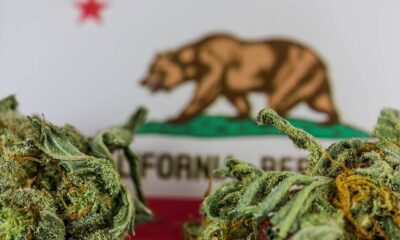

California Passes Bill to Ban Intoxicating Hemp Products Outside Cannabis Market
-


Pending Federal Hemp Legislation Could Reshape The Legal Industry By Banning Some Products (Op-Ed)
-
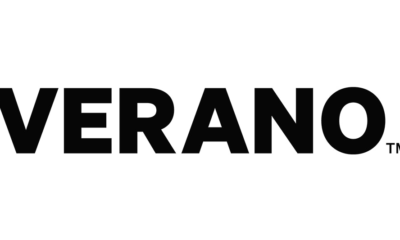

Verano Proposes to Redomicile Parent Company From British Columbia to Nevada
-
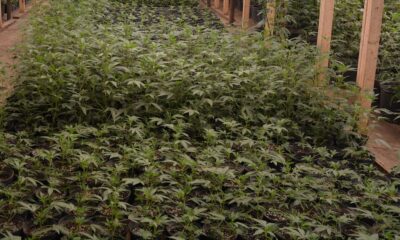

8,000 cannabis plants seized from illegal Bradford grow-op
-
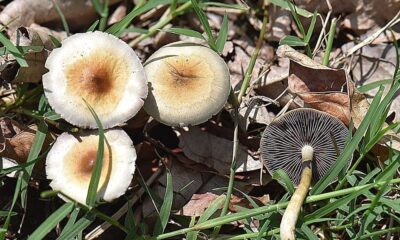

New York Lawmakers Schedule Psychedelics-Focused Hearing To Discuss ‘Medicinal Value And Risks’ Of Psilocybin
-
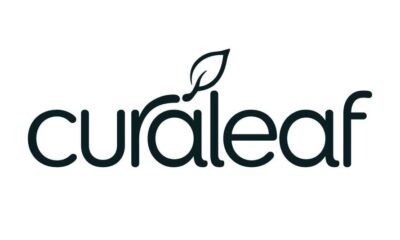

Curaleaf Opens Cannabis Dispensaries in Florida, Ohio
featured
California Passes Bill to Ban Intoxicating Hemp Products Outside Cannabis Market
Published
4 minutes agoon
September 15, 2025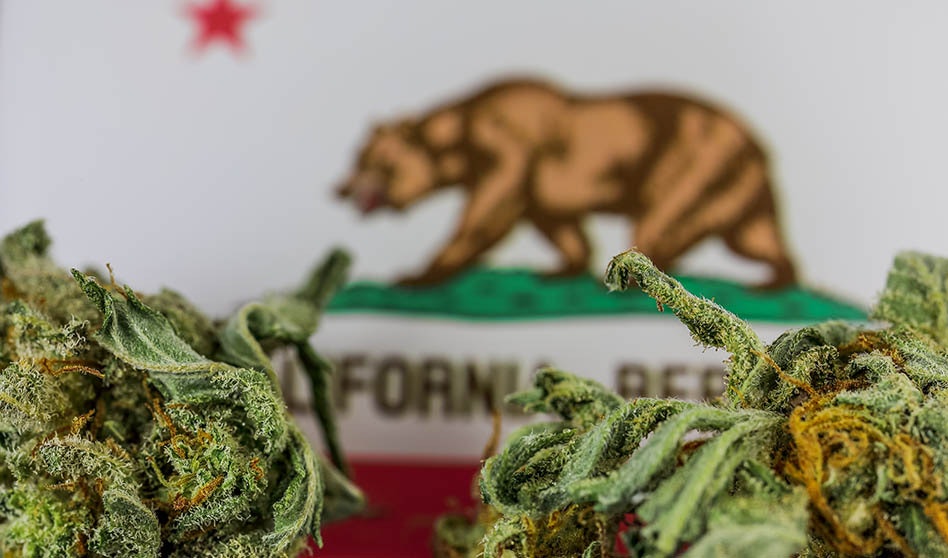
California lawmakers are shutting the door on delta-8 and delta-10 THC entirely, while other intoxicating hemp products will no longer be sold in smoke shops, gas stations and convenience stores in the name of public health and safety.
Pending Gov. Gavin Newsom’s signature, Assembly Bill 8 will outlaw synthetic cannabis products and inhalable cannabis products containing cannabinoids derived from hemp. The Assembly voted, 73-1, to concur with Senate amendments on Sept. 13, after the upper chamber voted, 37-0, the previous day to pass the bill.
Sponsored by Assembly Majority Leader Cecilia Aguiar-Curry, D-Winters, the 82-page legislation also seeks to expand the authority for state and local enforcement agencies to inspect, seize and destroy unlawful products.
In addition, it would integrate products containing concentrated cannabinoids derived from hemp, other than CBD isolate, into the state’s licensed and regulated cannabis supply chain. Aside from a pure CBD isolate, all other products would fall under the definition of a cannabis product.
Now being prepared for the governor, these provisions in the bill include an effective date of Jan. 1, 2028.
Sen. Angelique Ashby, D-Sacramento, presented the legislation for a third reading on Sept. 12 in the upper chamber.
“A.B. 8 seeks to protect public health by eliminating access to intoxicating hemp products outside of authorized dispensaries,” she said. “[The bill] will give state agencies and local governments the tools they need to protect our kids from synthetic products.”
The bill’s passage follows executive action by Newsom in September 2024, when he issued emergency regulations to require that hemp food, beverage and dietary products intended for human consumption have no detectable THC or other intoxicating cannabinoids per serving, create a minimum age to purchase hemp products to 21, and limit the number of servings of hemp products to five per package.
“We will not sit on our hands as drug peddlers target our children with dangerous and unregulated hemp products containing THC at our retail stores,” Newsom said at the time. “We’re taking action to close loopholes and increase enforcement to prevent children from accessing these dangerous hemp and cannabis products.”
In June 2025, the California Department of Public Health (CDPH) issued a notice of proposed rulemaking to follow through, estimating that the ban would cause 115 businesses to close and more than 18,400 jobs to be lost within five years of implementation, with more than $3.1 billion in lost revenue.
When the state Assembly passed A.B. 8 that same month, before sending it over to the Senate, Aguiar-Curry said her 2025 bill aimed to remedy the unintended consequences of legislation that she authored in 2021 to create a “well-regulated and safe hemp market” for Californians.
“Bad actors have abused it to sell intoxicating hemp products outside dispensaries and without age limits. This is illegal and is absolutely unacceptable,” Aguiar-Curry said in June. “A.B. 8 is an important step forward in protecting our kids and ensuring intoxicating products are sold safely and legally. By closing dangerous loopholes, we’re reinforcing our commitment to responsible regulation and supporting struggling legal businesses competing with illegal markets.”
Intoxicating hemp products, which often aren’t subject to the excessive tax or regulatory structures of state-sanctioned cannabis markets, undercut businesses that pay a premium to operate and provide meaningful state and local funding. Under A.B. 8, all concentrated cannabinoids derived from hemp, other than CBD isolate, would be subject to the state’s 15% excise tax.
While A.B. 8 represents a victory for California’s licensed cannabis businesses, the triumph could have been greater.
In particular, a Senate amendment removed language from the bill that would have repealed the requirement for the California Department of Tax and Fee Administration (CDTFA) to increase the cannabis excise tax to make up for lost revenue from the 2022 elimination of the state’s cannabis cultivation tax.
While the state’s excise tax automatically increased from 15% to 19% on July 1 due to a budget trailer that Newsom orchestrated in 2022, California lawmakers passed legislation this session to roll back that rate to 15% and suspend the CDTFA from increasing it until at least June 30, 2028. That bill is also heading to Newsom’s desk.
RELATED: California Cannabis Excise Tax Going Back to 15% Next Month, Pending Governor’s Signature
The Senate also amended A.B. 8 to clarify that cannabinoid products derived exclusively from industrial hemp may be shipped through the state without entering the licensed market—provided they are not sold in California—or shipped out of California by a licensee. This aligns with interstate commerce protections provided in the 2018 Farm Bill, which federally legalized commercial hemp cultivation.
Another Senate amendment provides that, until Jan. 1, 2028, licensed cannabis manufacturers can only use cannabinoid concentrates and extracts that are manufactured or processed exclusively from cannabis obtained from a licensed cultivator.
In a bill analysis, lawmakers referenced a February 2025 white paper titled The Great Hemp Hoax, which was co-authored by Tiffany Devitt, a board member for the California Cannabis Operators Association (CaCOA) and the director of regulatory affairs for licensed retailer March and Ash. The white paper included an analysis of 104 products marketed as hemp from 68 brands, finding that 95% contained chemically synthesized cannabinoids.
Two California retailers, March and Ash and Embarc, and the United Food and Commercial Workers (UFCW) Local 135 sponsored the report, with testing provided by Infinite Chemical Analysis Labs.
“Additionally, over 88% of tested products exceed the maximum amount of THC allowed to be classified as hemp products in California,” according to the A.B. 8 analysis. “The white paper found that, on average, vape products supposedly derived from hemp had THC equivalency levels 268% above the state’s threshold for adult-use cannabis.”
In opposing A.B. 8, the Hermosa Coalition for Drug-Free Kids argued that Californians never voted to legalize intoxicating hemp products when they passed Proposition 64 to legalize adult-use cannabis in the November 2016 election.
“We are also opposed to integration because the data on the harms of these products are only continuing,” the coalition wrote. “Additionally, California’s legal cannabis industry is very poorly regulated. How on earth can it handle hemp? THC is THC. Whether it’s from marijuana or hemp, it is wreaking all kinds of public health harm.”
The California Department of Cannabis Control (DCC) reported that the legislation would cost roughly $2.5 million to implement next fiscal year and approximately $5.8 million in ongoing annual costs, according to the California Senate Appropriations Committee, which approved the bill in a unanimous vote last month.
Amy O’Gorman Jenkins, the executive director of the CaCOA, which sponsored A.B. 8, called the Legislature’s passage “a big win.”
“By bringing hemp-derived THC products under proper oversight while preserving access to safe non-intoxicating products, we are one step closer to finally creating a level playing field our licensed cannabis businesses deserve,” she said. “A.B. 8 draws a clear line: In California, intoxicating hemp products should no longer undercut public health, youth safety or the integrity of our legal cannabis market.”

Author: mscannabiz.com
MScannaBIZ for all you Mississippi Cannabis News and Information.
featured
Pending Federal Hemp Legislation Could Reshape The Legal Industry By Banning Some Products (Op-Ed)
Published
1 hour agoon
September 15, 2025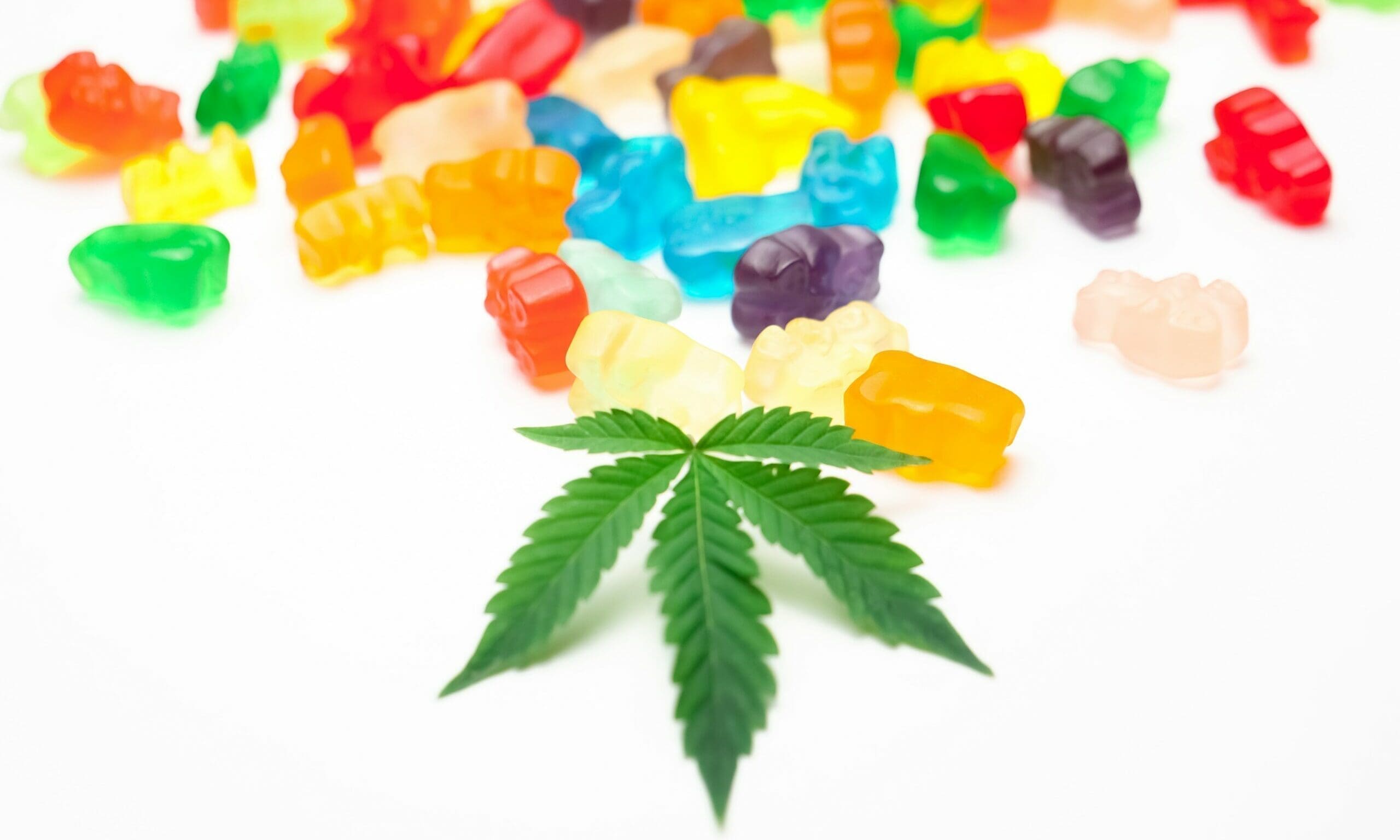
“The outcome of the debates around these provisions will determine the future of hemp-derived products in the United States, and the economic viability of the industry.”
By Lauren Estevez and Joanne Caceres, Dentons US Cannabis Group
As Congress returns from recess this month, the hemp industry is closely monitoring provisions that could fundamentally reshape the entire sector.
The 2018 Farm Bill removed hemp and its derivatives containing less than 0.3 percent delta-9-THC from the Controlled Substances Act. A so-called “unintended consequence” was that it became possible to produce hemp products that complied with the limit but had sufficient amounts of THC to produce an intoxicating effect.
Sales of such products, including hemp beverages and edibles, have increased significantly, encouraged by consumer demand for alternatives to alcohol. Hemp beverage sales alone are expected to more than double over the next four years, to reach $4.4 billion by 2029. All of this could change under provisions contained in pending appropriations legislation.
Sens. Mitch McConnell (R-KY) and Rand Paul (R-KY) have been dueling over various provisions that could dramatically change the hemp market, with McConnell vowing to “close the Farm Bill loophole” responsible for the intoxicating hemp market. In contrast, Paul is looking to “reach a compromise” on key provisions that would further regulate the hemp industry rather than upend it.
As current appropriations legislation makes its way through the legislative process in the House and the Senate, these are the key provisions that state regulators, consumers and the hemp industry should be watching. There is also pending federal legislation that would regulate hemp products apart from the Farm Bill.
“Total” THC Concentration Calculation Effectively Prohibits Certain Intoxicating Products
One of the provisions that appeared in House and Senate versions of agriculture appropriations legislation—before being removed from the Senate version—would add other THC molecules to the calculation for the 0.3 percent delta-9-THC limit.
The 2018 Farm Bill defined legal hemp as “the plant Cannabis sativa L. and any part of that plant…with a delta-9 tetrahydrocannabinol concentration of not more than 0.3 percent on a dry weight basis.” In contrast, the current bills account for “total tetrahydrocannabinol concentration (including tetrahydrocannabinolic acid) of 0.3 percent in the plant on a dry weight basis.”
This provision would bar certain products from the market which have low delta-9-THC but have high concentrations of other intoxicating THCs (such as THC-A, Delta-8 THC, THC-O, etc.). This would outlaw many hemp products currently on the market, especially hemp flower products and vape products with high THC-A, and cause disruption to many business owners, especially smoke shops and gas stations, where such products thrive.
If enacted, it would require manufacturers to reformulate certain products and invest in new testing procedures to ensure compliance with the narrower definition for legal products.
Excluding Synthetic Cannabinoids And Conversion Will Lower Supply and Increase Input Costs
The agriculture spending legislation also excludes synthetic cannabinoids from the definition of legal hemp products. These provisions exclude cannabinoids that are not naturally produced in the cannabis plant, and those which are naturally occurring but which are produced “outside of the plant.”
While synthetic THCs are currently illegal under the Controlled Substances Act, there is legal uncertainty around naturally occurring THCs which are created through chemical processes from the naturally extracted hemp cannabinoids (frequently, naturally occurring CBD is converted to delta-9-THC and other intoxicating cannabinoids).
A prohibition against converting CBD to THC would significantly impact the cost to make these ingredients for intoxicating hemp products. Manufacturers that currently rely on these converted cannabinoids would need to discontinue certain product lines altogether or produce them with naturally occurring cannabinoids at tighter margins.
Ban On “Quantifiable” THC Or Intoxicating Cannabinoids Would Push Intoxicating Hemp Products Back To Illicit Market And Inadvertently Harm The Non-Intoxicating Cannabinoid Wellness Market
The most controversial provision would limits the “legal limit” of THC concentration in hemp products from 0.3 percent to “no quantifiable” amount of THC, with quantifiable amount to be defined by the Department of Health and Human Services (HHS) in consultation with the U.S. Department of Agriculture (USDA).
The provision would create tremendous disruption for the hemp industry, state regulators and customers. As currently drafted, the definition of “no quantifiable amount” is ambiguous as to whether it means 0 percent or some other threshold. Certificates of analysis usually denote no “detectable amount” when testing is below a certain limit.
The definition of “quantifiable” is unknown. This rule could ensnare full spectrum and CBD products, which are neither intended nor designed to be intoxicating. The change would also conflict with the many state laws that allow for 0.3 percent and or have quantifiable limits like 2.5mg, 5 mg, or 10mg of THC per serving or package for legal hemp products.
Standalone Hemp Regulation Bills Like Griffith’s Proposed Approach
While additional regulation of hemp products is sorely needed, a regulatory approach focused on health and safety will ultimately be more effective than a prohibition bill.
Draft legislation from Rep. Morgan Griffith (R-VA) circulated in late August would allow for hemp product sales to adults aged 21 and over, and would require HHS to determine THC thresholds within 60 days of passage of the bill.
The legislation would require labels to contain a QR code linking to a certificate of analysis showing which cannabinoids the product contains and in what quantities, prevent hemp producers from adding alcohol and nicotine to their products and require tamper-proof packaging that does not appeal to youth.
In the event that HHS fails to establish THC thresholds within the required timeframe, the bill would automatically implement the following limits:
- Oral hemp products with non-intoxicating cannabinoids: Up to 10mg/serving and 50mg/package.
- Inhalable products: Up to 100mg/serving and 500mg/package.
- Topical products: Up to 100mg/serving and 500mg/package.
- Intoxicating cannabinoid products (e.g. items containing THC): Up to 0.2mg/serving and 1mg/package.
The restrictions in Griffith’s bill mirror many state regulations that are already in place, and the automatic THC thresholds that would be implemented allow for a larger variety of products than the restrictions in the appropriations bills. However, the proposed limits to intoxicating cannabinoid products suggested would effectively eliminate the legal hemp intoxicating product market.
Conclusion
The pending appropriations bills and other hemp legislation could dramatically reshape the hemp industry, with proposed provisions that could significantly tighten the regulatory landscape.
If Congress redefines THC limits to include all cannabinoids, excluding converted and synthetic cannabinoids, or potentially imposes a “no quantifiable” THC threshold, lawmakers are signaling a shift toward significant product restrictions for hemp producers.
These changes would not only disrupt current business models and product lines but also create substantial compliance challenges for manufacturers and state regulators.
The ambiguity surrounding key terms like “quantifiable” further complicates the path forward, raising questions about enforcement and conflicts with existing state laws.
All hemp products, whether intoxicating or not, would be impacted by these provisions if passed as drafted. Such stark changes to the law would likely push such products to the illicit market, making them less safe.
Instead, an approach similar to states like Minnesota, which allows low intoxicating dosages of up to 10mg, or less THC for beverages, as determined at the state level, would be a more suitable alternative for Congress to consider.
Now that Congress is returning from recess, the outcome of the debates around these provisions will determine the future of hemp-derived products in the United States, and the economic viability of the industry. Ultimately, any of this federal legislation would be a critical turning point for the industry, either fostering continued growth and regulatory clarity, or introducing new hurdles that could reshape the market for years to come.
Lauren Estevez is a Senior Managing Associate in the Dentons US Cannabis Group. Joanne Caceres is a Partner in the Dentons US Cannabis Group.

Author: mscannabiz.com
MScannaBIZ for all you Mississippi Cannabis News and Information.
featured
Verano Proposes to Redomicile Parent Company From British Columbia to Nevada
Published
2 hours agoon
September 15, 2025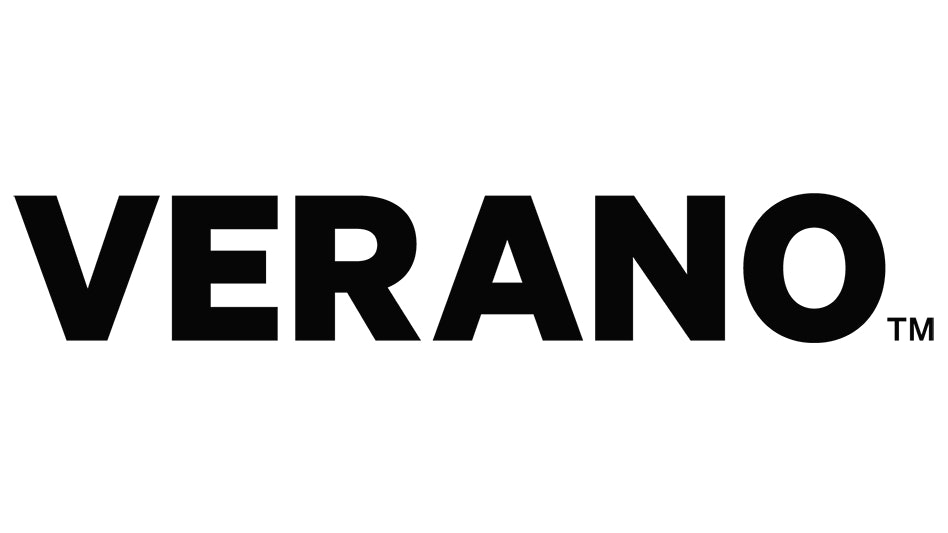
[PRESS RELEASE] – CHICAGO, Sept. 15, 2025 – Verano Holdings Corp., a leading multistate cannabis company, announced that the company’s board of directors approved, and the company will be seeking shareholder approval of, a proposed plan to redomicile Verano Holdings Corp. from British Columbia, Canada, to the state of Nevada.
Verano believes that redomiciling in the United States better aligns with its U.S.-based business and operations and streamlines its organizational and regulatory structure within the United States, among other reasons discussed in the preliminary proxy statement filed by the company on Sept. 12, 2025, with the U.S. Securities and Exchange Commission and in Canada on SEDAR+ (the “preliminary proxy statement”).
“Since inception and our 2021 go-public transaction, we’ve focused on ways to unlock shareholder value and create potential catalysts for the business, including enhancements to our corporate structure and executing a capital markets strategy that positions Verano to capitalize on near and long-term growth opportunities,” Verano Chairman and CEO George Archos said. “From our 2023 strategic decision to list company shares on Cboe Canada, a senior U.S.-based exchange with global operations, to our redomiciling in the U.S. as a newly-registered Nevada enterprise, we are prepared to leverage opportunities that benefit the company and our shareholders.”
The company’s plan to redomicile Verano Holdings Corp. in the United States is not expected to materially impact its existing manufacturing and retail business, which spans 13 U.S. states, including the location of its corporate headquarters in Chicago.
Pursuant to the company’s proposed plan of arrangement, Verano will continue from the jurisdiction of British Columbia, Canada, to the jurisdiction of the state of Nevada (the “continuance”). Upon completion of the continuance, the issued and outstanding subordinate voting shares of the British Columbia-formed Verano Holdings Corp. will automatically be exchanged on a one-for-one basis for shares of common stock of the continued Verano Holdings Corp. domiciled in Nevada (“Nevada common stock”). Each of the company’s outstanding stock options and restricted stock units will be deemed to be adjusted pursuant to the terms of the company’s stock and equity incentive plan to become a stock option and a restricted stock unit to receive an equal number of shares of Nevada common stock, respectively.
The preliminary proxy statement was filed in connection with a proposed special meeting of the company’s shareholders to consider and, if thought advisable, approve a plan of arrangement implementing the continuance. The company’s board of directors may, at any time, including after receiving shareholder approval, in its discretion, decide not to proceed with the arrangement and not complete the continuance.
Upon completion of the continuance, the Nevada common stock will trade on the Cboe Canada exchange under the company’s existing ticker symbol, “VRNO,” and be quoted on the OTCQX under the symbol “VRNOF.”
For more information on Verano Holdings Corp., visit the company’s investor website: https://investors.verano.com/.

Author: mscannabiz.com
MScannaBIZ for all you Mississippi Cannabis News and Information.

California Passes Bill to Ban Intoxicating Hemp Products Outside Cannabis Market

Pending Federal Hemp Legislation Could Reshape The Legal Industry By Banning Some Products (Op-Ed)

Verano Proposes to Redomicile Parent Company From British Columbia to Nevada

8,000 cannabis plants seized from illegal Bradford grow-op

New York Lawmakers Schedule Psychedelics-Focused Hearing To Discuss ‘Medicinal Value And Risks’ Of Psilocybin

Curaleaf Opens Cannabis Dispensaries in Florida, Ohio

How to Protect Your Outdoor Cannabis Crops From Pests

Feds provide anti-cannabis group a platform to bash legalization (Newsletter: September 15, 2025)

Dozen arrested after south Mississippi bust for illegal sales to underage customers

The Toking Traveler: Why Amsterdam Weed Is Mostly Boof

Arkansas Medical Marijuana Sales Are On Track To Set A New Annual Record

When Cannabis Brands Blur Into Youth Culture, Regulators Notice: Lessons From Tobacco’s Past

Rhode Island Marijuana Dispensary License Application Process Officially Launches

Middle school student found with cannabis in bookbag, Charles County deputies say

Smugglers who brought drugs on an industrial scale into Wales jailed

Attorney pulls out bag of cannabis in NC Supreme Court hearing

WHO AM I? Man wanted for New Bern cannabis store theft

Cannabis packages under scrutiny

California authorities shut down nearly $30 million worth of illegal cannabis operations

A Green Light for Cannabis? Europe Waits While the U.S. Untangles the Red Tape

Move Over, Booze: Weed Drinks Pulled $1.1 Billion in U.S. Sales in 2024

Congressional Committee Votes To Repeal Marijuana Expungements Law In Washington, D.C.

Times Square Welcomed Its Brightest Cannabis Billboard Yet

Smoking Marijuana With A Water Bong Doesn’t Effectively Filter Compounds From Smoke, Study Suggests

Alert: Department of Cannabis Control updates data dashboards with full data for 2023

Connecticut Appoints The US’s First Cannabis Ombudsperson – Yes there is a pun in there and I’m Sure Erin Kirk Is Going To Hear It More Than Once!

5 best CBD creams of 2024 by Leafly

EU initiative begins bid to open access to psychedelic therapies
New Study Analyzes the Effects of THCV, CBD on Weight Loss

Free delta-9 gummies from Bay Smokes

5 best autoflower seed banks of 2024 by Leafly

Discover New York’s dankest cannabis brands [September 2024]

Press Release: CANNRA Calls for Farm Bill to Clarify Existing State Authority to Regulate Hemp Products

Curaleaf Start Process Of Getting Their Claws Into The UK’s National Health System – With Former MP (Resigned Today 30/5/24) As The Front Man

May 2024 Leafly HighLight: Pink Runtz strain

Local medical cannabis dispensary reacts to MSDH pulling Rapid Analytics License – WLBT

Recreational cannabis on ballot for third time in South Dakota

5 best THC drinks of 2024 by Leafly

Horn Lake denies cannabis dispensary request to allow sale of drug paraphernalia and Sunday sales | News

Mississippi city official pleads guilty to selling fake CBD products

6 best CBD gummies of 2024 by Leafly

Nevada CCB to Accept Applications for Cannabis Establishments in White Pine County – “Only one cultivation and one production license will be awarded in White Pine County”

The Daily Hit: October 2, 2024

5 best delta-9 THC gummies of 2024 by Leafly

Weekly Update: Monday, May 13, 2024 including, New Guide for Renewals & May Board meeting application deadline

PRESS RELEASE : Justice Department Submits Proposed Regulation to Reschedule Marijuana

5 best THCA flower of 2024 by Leafly

People In This State Googled ‘Medical Marijuana’ The Most, Study Shows
Trending
-

 California Cannabis Updates1 year ago
California Cannabis Updates1 year agoAlert: Department of Cannabis Control updates data dashboards with full data for 2023
-

 Breaking News1 year ago
Breaking News1 year agoConnecticut Appoints The US’s First Cannabis Ombudsperson – Yes there is a pun in there and I’m Sure Erin Kirk Is Going To Hear It More Than Once!
-

 best list1 year ago
best list1 year ago5 best CBD creams of 2024 by Leafly
-

 Business12 months ago
Business12 months agoEU initiative begins bid to open access to psychedelic therapies
-

 cbd1 year ago
cbd1 year agoNew Study Analyzes the Effects of THCV, CBD on Weight Loss
-

 Bay Smokes1 year ago
Bay Smokes1 year agoFree delta-9 gummies from Bay Smokes
-

 autoflower seeds12 months ago
autoflower seeds12 months ago5 best autoflower seed banks of 2024 by Leafly
-

 cannabis brands12 months ago
cannabis brands12 months agoDiscover New York’s dankest cannabis brands [September 2024]






